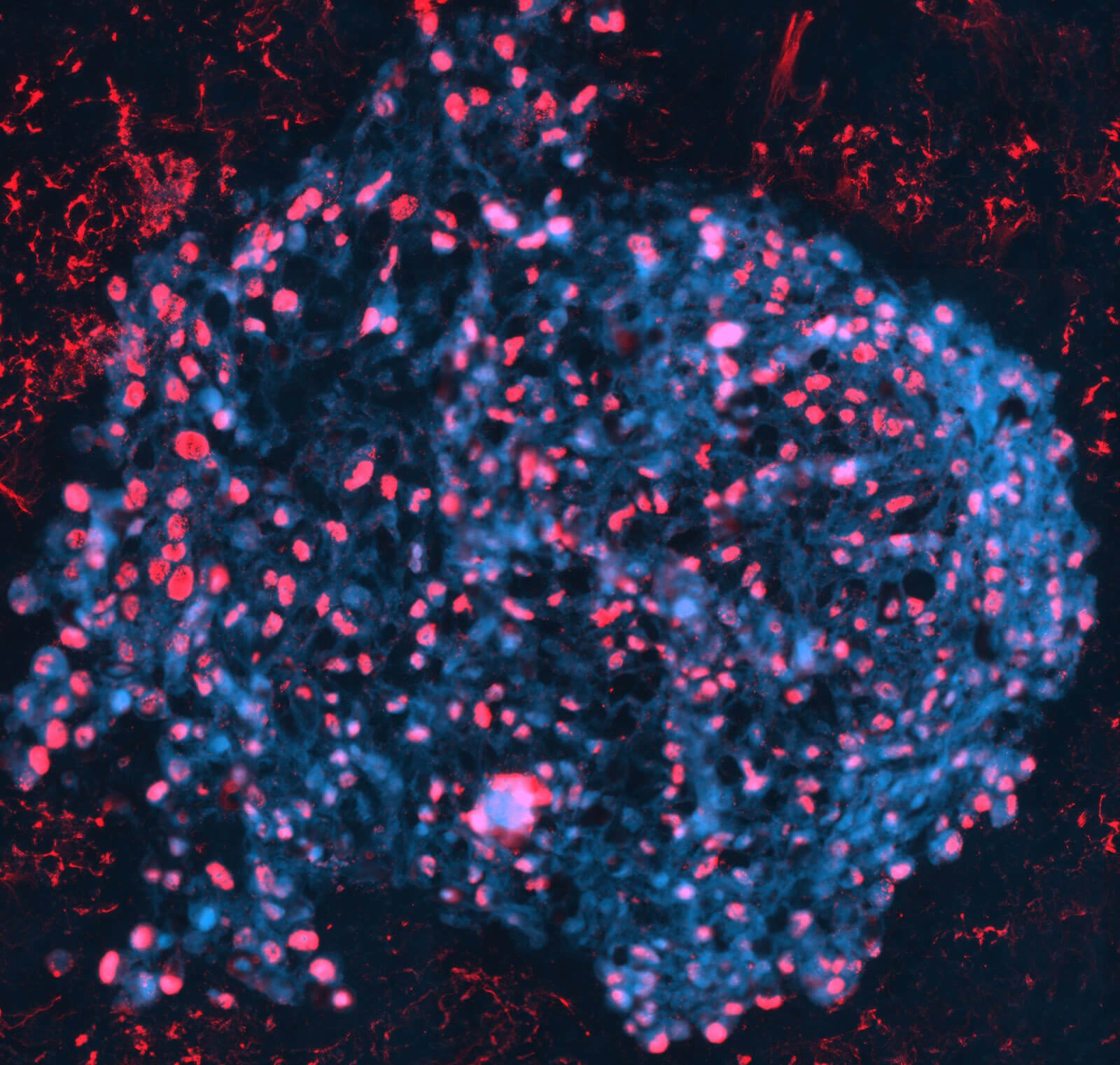
An image of a micro-tumor by NMI Natural and Medical Sciences Institute
Singapore based Proteona Pte. Ltd. has announced the “DeepSee” collaboration on developing a platform for patient-derived micro-tumors for drug screening and discovery using single cell multi-omics analysis.
The strategic partners include the German drug discovery firm Synovo, and the NMI Natural and Medical Sciences Institute at the University of Tübingen. The project receives funding from Enterprise Singapore jointly with the central innovation program (Zentrales Innovationsprogramm Mittelstand, ZIM) initiated by the German Federal Ministry for Economic Affairs and Energy (BMWi).
“To find the right treatment for individual cancer patients, understanding the heterogeneity of drug response on single cell level is imperative,” commented Dr. Andreas Schmidt, CEO of Proteona. “A small subset of cells can lead to disease relapse or treatment failure. This tiny signal, often overlooked in bulk analysis, will be accurately captured with Proteona’s single cell multi-omics platform. By combining it with the patient-derived micro-tumor technology, we offer a powerful tool not only for individual patient treatment selection, but also for drug discovery and new cancer therapy development.”
The collaboration is a further step towards truly personalized precision medicine. The patient-derived micro-tumors simulate patient’s cancer and microenvironment makeup, and allow multiple therapies and therapy combinations to be tested at once. Using a combination of traditional assays as well as single cell multi-omics analysis, the platform will be able to characterize immune-infiltrating lymphocytes and their response to immunotherapy such as check point inhibitors on a single cell level. The rich information will then be analyzed with specialized algorithms to derive patient-specific drug response information. The collaboration aims to develop and commercialize a full service from wet lab procedures to state-of-the-art data analysis.
“The key to tumor immunotherapy is finding means to activate the immune cells in tumors. Screening for substances that do this is best done in a context that replicates the tumor micro-environment,” said Dr. Michael Burnet, managing Director of Synovo.
Synovo chemists will work together with the NMI and Proteona to optimize substances that release immune suppression. Data on the activity of new substances provided by Proteona analysis will be used to select improved candidates in a process of evolutionary optimization.
Although the NMI has been conducting research on micro-tumors for several years, even the established research institute is constantly reaching its limits: "The tissue samples are usually very small, which limits the number of parallel analyses," explains Christian Schmees, head of the Tumor Biology group at the NMI. By being able to carry out single cell analyses, which are considerably more sensitive and therefore require smaller sample quantities, the number of analyses from micro-tumor samples can be increased and the informative value improved. This is particularly relevant due to the close cooperation with the University Hospital in Tübingen.
As a project partner, the NMI has two functions: it does not only generate micro-tumor samples for subsequent analyses, but is also actively involved in the development of new methods. "We ourselves hope to be able to use the jointly developed technology in our laboratories in the future in order to carry out more extensive analyses and be able to identify and investigate treatments that are specifically adjusted to individual patients," says Schmees.
“Proteona is privileged to work with Synovo and NMI, who are leaders in drug discovery solutions and novel therapy/diagnostics development in Germany,” said Schmidt. “Proteona has long benefited from strong ties with German biotech and pharmaceutical industry. Our German daughter company, Proteona GmbH, is an example of how German and Singapore collaboration can accelerate technology exchange, innovation, and jointly creating a clinical impact.”
Immunotherapy is a type of emerging cancer treatment that boosts the body’s defense, the immune system, to kill cancer cells. Several types of immunotherapy have been developed, such as immune checkpoint inhibitors, monoclonal antibodies, and chimeric antigen T Cell therapy.
The collaboration is part of Proteona’s continued effort to advance precision medicine using single cell proteogenomic analysis. Proteona has recently awarded grants under the Proteona Oncology Challenge to top researchers using single cell multi-omics for improving clinical outcomes.




